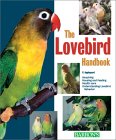Is My Bird Sick?
In the wild birds have a primary concern: to protect themselves from predators. A sick or injured bird is a prime target for predators. Because of this, birds have learned to “disguise” their illnesses. By the time birds show obvious signs of illness, they are very ill indeed. It is important to learn how to recognize the signs of an illness before it progresses to serious disease or death.
Too often I hear about birds who have died unexpectedly. The owners lament that they had no idea the bird was sick. However, when questioned on specific signs and symptoms, most will admit they did see certain changes, but they did not realize these indicated a life-threatening illness. It is a good idea to have a strong sense of certain baseline behaviors so you will quickly notice if your bird is acting differently. It is also a good idea to look closely at your bird’s daily fecal matter so you will be able to recognize when the color and consistency have changed. Here are some specific changes to look for in your pet:
Changes in behavior. A normally independent bird might seem more “needy,” or a normally cuddly bird might seem standoffish. If a usually playful parrot seems to have lost interest in his toys, this could also be a warning sign.
Changes in fecal matter. The normally green and white poops (parrots) have suddenly become black, more watery, or have changed color in a way that cannot be explained by an unusual addition to the bird’s diet. Remember, diet can greatly affect the color of fecal matter; therefore, you should know what your bird’s poops look when he is healthy rather than compare them to some generalized standard.
Changes in appearance. The bird is puffed up more than usual, listless, “droopy”. Eyes have a tired appearance. Tail “bobbing” as if the bird is breathing more heavily.
Other physical changes. Discharge around the nares (nose area) or ears. Messy vent (diarrhea). Sneezing or a wheezing sound when breathing. Labored breathing is a very serious sign and should never be ignored.
Changes in activity. If you bird is sleeping longer and doesn’t seem to be as active or playful, these can be signs of illness. If your bird is sitting puffed up on the bottom of his cage, things have progressed to a very serious stage.
Bleeding. Be prepared for bleeding-type emergencies. There are some products on the market that will stop bleeding. Styptic powder is good for toenail bleeding. It is painful on open wounds, however, and can cause a bird to mutilate itself. Common household flour can also stop most bleeding. Bird’s are small creatures and can bleed to death quite quickly. Any bird that has bled significantly should be seen by a vet, even if you have stopped the bleeding.
Cats. If a cat has contact with your bird, even without seemingly breaking the skin, you should take that bird to a vet immediately. Cats have Pasteurella bacteria as part of their normal flora. This bacteria is extremely deadly to birds. If your bird has been batted around by a cat, take it to a vet, even if it seems unharmed.
If your pet bird shows any of the symptoms described above, it is important to take him to a qualified avian veterinarian as soon as possible. Since these signs generally become obvious only after a bird has been sick for quite some time, even a day’s delay can mean the difference between life and death.









